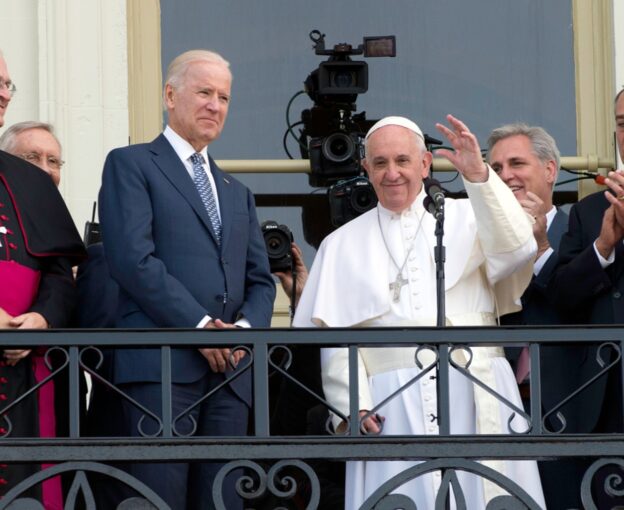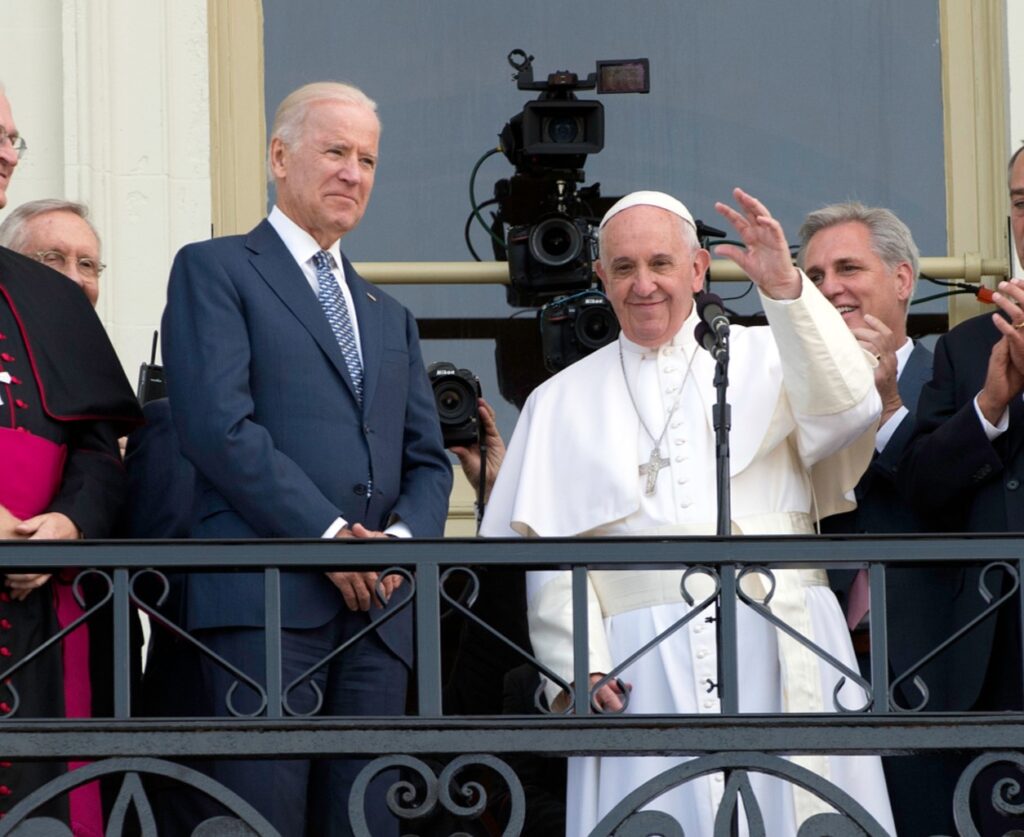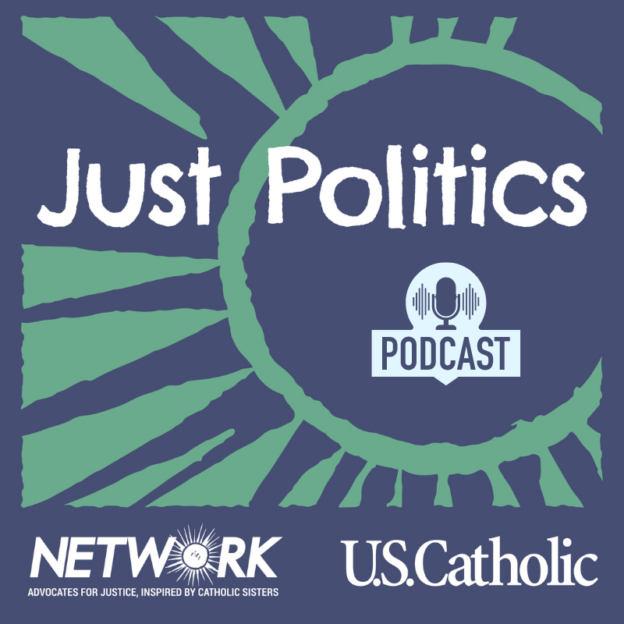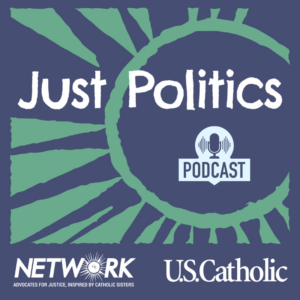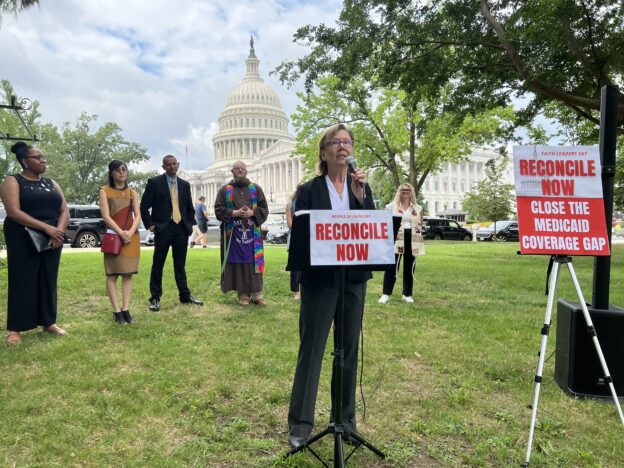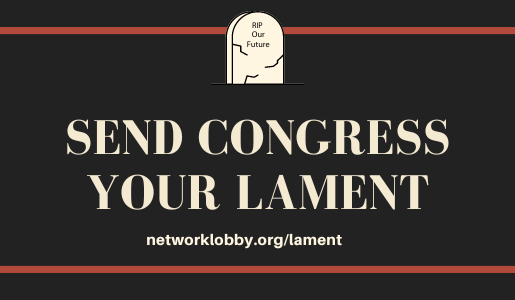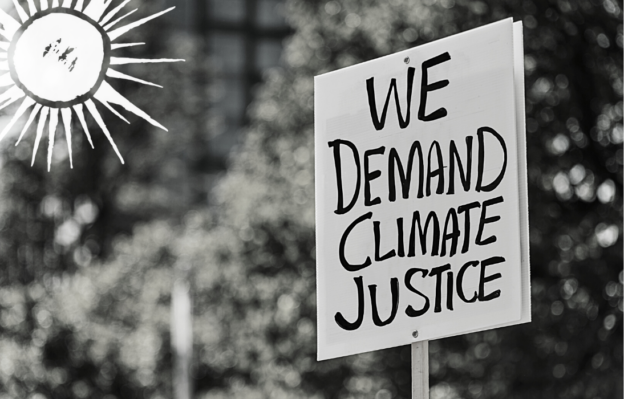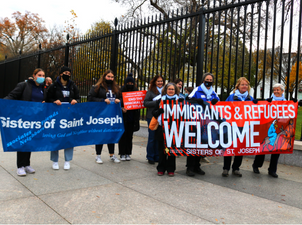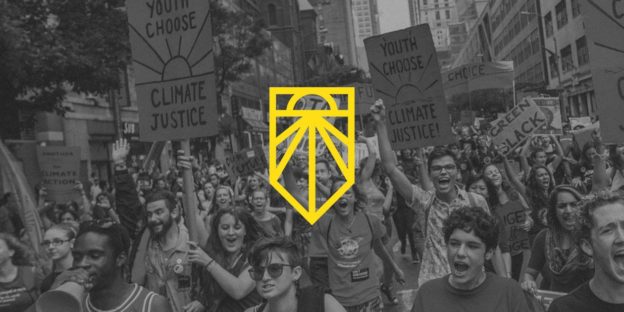Building An Economy for All Means Protecting Our Common Home
Drake Palmer Starling
April 22, 2025, Earth Day
Today is Earth Day! As we celebrate Earth Day and look to the 10th anniversary of Pope Francis’s encyclical Laudato Si’ on May 24, join NETWORK’s Senior Advocate for Energy and Environmental Policy Drake Starling with reflections on our work for a healthy environment. We know that An Economy for All is a sustainable economy—one that ensures clean air and safe water, clean energy jobs, and healthy communities for all of us.
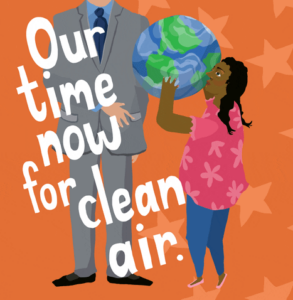 For decades, NETWORK has advocated for an economy that allows all of us, no matter our background, to thrive. But thriving doesn’t just mean fair wages, good jobs, or affordable housing. It also means clean air to breathe, safe water to drink, and land that sustains life, not poisons it.
For decades, NETWORK has advocated for an economy that allows all of us, no matter our background, to thrive. But thriving doesn’t just mean fair wages, good jobs, or affordable housing. It also means clean air to breathe, safe water to drink, and land that sustains life, not poisons it.
The same ultra-wealthy actors who exploit workers and rig our economy are the same ones who pollute our air, water, and land. Big Oil and mining corporations exploit our common home for profit, and then use those profits to back politicians who will allow them to keep extracting profits and passing the costs of their destruction onto the rest of us. They poison our communities—especially low-income neighborhoods, communities of color, rural towns, and Indigenous lands—leaving us with a legacy of illness, environmental devastation, and economic hardship.
As people of faith, we know this is immoral. In Laudato Si’, Pope Francis reminds us that “the environment is on loan to each generation, which must then hand it on to the next.” We have a sacred duty to protect creation, to act in solidarity with the workers and families most affected by environmental harm, and to ensure clean air, water, and land for all of us. That’s why NETWORK has joined communities across the country in the work for a healthy climate, clean energy, and environmental justice.
Coming Together for Clean Air, Safe Water, and Healthy Land
This year, our advocacy will focus on three policy areas that intersect with ecological and economic justice. Our climate portfolio for the 119th Congress covers three key priorities:
-
- Clean Air and Safe Water. From oil refineries to industrial waste, pollution doesn’t fall evenly on all communities. Historically, corporations have intentionally built polluting factories and toxic waste facilities in low-income and Black and Brown neighborhoods, often leaving them with toxic air, undrinkable water, and higher rates of asthma and cancer. We’re pushing for stronger Environmental Protection Agency (EPA) regulations to curb pollution, hold corporate polluters accountable, and ensure clean air and water for all of us.
- Healthy Land and Creating New Clean Energy Jobs No matter where we live, we all want safe, clean, and well-paying jobs, and we all value being able to choose to power our homes with clean energy. The time is now to make the U.S. clean energy dominant, and in a way that is just. Mining reform, responsible public land use, and protections for communities impacted by polluting and dirty industries must be at the heart of becoming clean energy dominant. We are advocating for investment in clean energy, so that we can all enjoy fresh air and healthy land and create a sustainable economy with hundreds of thousands of good, clean energy union jobs.
- Investing in People, Not Polluters The Inflation Reduction Act (IRA) created historic investments in clean energy jobs, tax credits for families, and communities across the country — from funding new solar panel manufacturing plants in Georgia and wind energy projects in Texas, to providing up to $7,500 in tax credits for families buying electric vehicles, and delivering grants to low-income communities to replace lead pipes and improve energy efficiency in public housing. Since its passage in 2022, the IRA has spurred over 330,000 new clean energy jobs across the United States, with projections estimating the creation of more than 1.5 million additional jobs by 2030. But fossil fuel corporate executives and their paid lobbyists are trying to weaken these investments so they can cash in on taxpayer money instead. We are working to ensure these investments benefit us ordinary people and our communities—not ultra-wealthy polluters.
Our Shared Values Define Our Advocacy
Fossil fuel executives and the lawmakers they fund want us to believe we have no say in our future—but we know better. Faith-filled justice-seekers have always been at the heart of movements for the healthy environment we deserve. We won landmark protections like the Clean Air Act and the Clean Water Act, we set national water quality standards, and we passed the Inflation Reduction Act—the largest climate investment in U.S. history.
An economy that works for all of us can only be a sustainable, clean energy economy. The same faith that calls us to build An Economy for All calls us to be stewards of creation and ensure a livable planet for all. We are answering that call—together.
To find out more about NETWORK’s full climate portfolio and the issues we are working on to create a more sustainable planet, please visit our sister site, NETWORK Advocates.








